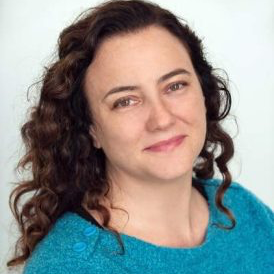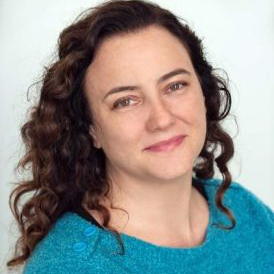Uncovering Racist and Sexist Stereotypes in Social Science Research


When making public policies, lawmakers often turn to research to help guide decisions and craft laws. For example, public opinion research is imagined to be a good way to find out how people feel about important social issues, such as abortion. However, Professor Sara McClelland, (Psychology, Women’s and Gender Studies, IRWG affiliate) argues that some research has relied on racist and sexist stereotypes when assessing what people think and feel about abortion. She argues that studies too often rely on biases about women in general, and Black women in particular.
According to McClelland, “Surveys used in public opinion research often contain meanings and assumptions that remain out of sight of the researchers who rely on them.” McClelland was recently awarded a three-year grant from Indiana University to assess the presence of negative stereotypes in research about abortion, and to develop a new a set of strategies that more accurately assess individuals’ beliefs about abortion. The project, titled “Racial and gender stereotypes: Implications for measurement of abortion attitudes,” will be administered through IRWG from 2020-2023.
McClelland has identified how researchers’ unconscious biases about people of color and women can shape survey-based research designs. These, in turn, can affect public policy, as well as school programming, and health care decision making. In previous research, she has found these kinds of biases in federally-funded research about sex education, research about sexual assault on campus, and in research about sexual health in medical settings.
In one of her recently published studies, she found that stereotypes were reproduced in abortion research through repeated associations between Black women, images of fiscal irresponsibility, and abortion. “Abortion survey measures frequently rely on individuals’ evaluations of women’s moral, sexual, and financial conditions,” she explains. “We found that when designing surveys, researchers often conflate images of women, economic and relational instability, and abortion. As a result, we often don’t know whether survey research reflects people’s feelings about women, feelings about abortion, or feelings about the images of social instability that are so commonly included in research about abortion.”
Individuals’ attitudes towards motherhood, sexual relations, and poverty are framed by historical discourses about gender and race. These stereotypes create a set of social cues that shape who is imagined when respondents are asked about their moral and legal attitudes towards abortion. This means that “survey responses may not be accurately capturing individuals’ attitudes about abortion, but instead, reflect individuals’ attitudes about race, gender, and deservingness,” explains McClelland.
While research studies are susceptible to unconscious biases, the results are likely to be interpreted as objective or impartial, and reproduced in news stories, reports, polling, and legislation. This “dispersion of bias” with the appearance of truth can perpetuate harmful stereotypes, beliefs, and policies.
By using feminist theories and methodologies, McClelland believes that research can be improved. Over the course of the grant, McClelland is spearheading seven different studies, one of which includes interviewing people in Kansas, Arizona, and Michigan to hear more about how people in rural and city settings think about abortion: who do they imagine has an abortion? How much do people think they cost? What are the assumptions about why people seek out abortion care?
Along with her research team—Dr. Majel Baker, a postdoctoral fellow, and graduate and undergraduate students from Psychology and Women’s and Gender Studies—McClelland will use surveys and interviews, as well as the use of illustrations of women with different skin tones and ages to study who and what people imagine when answering survey questions about abortion.
“The theories and methods that are developed in this study can (and should) be used in other areas of research which have been shaped by histories of racism, but are believed to be ‘impartial’ because they have been in place for so long and have been accepted as scientific,” she emphasizes. “This project aims to provide a model for how researchers might examine the tools they use for implicit and explicit biases that are ‘baked’ into the methods they use to study it.”
Read more about Professor McClelland and her research on her lab’s website, https://www.progresslab.info/.
